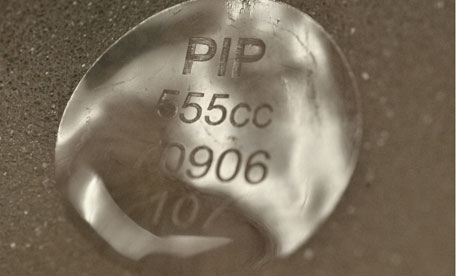
The government is to review the risks posed by faulty silicone breast implants after suggestions that more than 3,000 women in the UK could face complications. Andrew Lansley, the health secretary, announced on Saturday that there were fears that existing evidence about potential dangers was not reliable.
About 40,000 women in Britain are believed to have had implants made by the French company Poly Implant Prothese (PIP), including hundreds who had reconstructive breast surgery through the NHS.
French authorities shut down PIP last year after the company was found to be using a non-medical, low-grade silicone filler for implants and have since recommended that women have PIP prosthetics removed because of fears they may rupture.
Until now, the UK's Medicines and Healthcare Products Regulatory Agency (MHRA) had refused to follow suit. Officials said their data suggested the risk of rupture was only 1%, rather than the 3.6% estimated by the French. The agency also argued there was no evidence of cancer links to the implants and on that basis it said that their removal was not necessary.
But on Saturday Lansley said the NHS medical director, Professor Sir Bruce Keogh, would now carry out a review of the situation. The MHRA would also audit its evidence to resolve concerns about the "content and quality of the data that cosmetic surgery providers are sharing with the regulator".
According to the Independent on Sunday, the move was triggered when a leading cosmetic surgery firm told ministers privately that the rupture rate could be as high as 8%.
The company apparently carried out 4,000 of the implants, but if its estimate is borne out more widely 3,200 women could be affected
Lansley said: "We are doing everything we can to ensure that women with these implants get the best possible advice. So far, all the evidence from around the world suggests that women should not be worried and that there have not been abnormal levels of problems reported with these implants. But if any woman is worried, then they should contact their surgeon or GP."
Lansley said he had decided to set up the review after "conflicting data" was provided by a large private provider of the implants. This had left him "concerned and unhappy", the health secretary added.
"The validity of this data still requires full assessment and evaluation, so I have asked Professor Sir Bruce Keogh to lead an urgent investigation so that we can establish exactly what has happened and whether we need to improve the regulatory regime."
More than 270 women in the UK are attempting to sue clinics where they underwent surgery to be fitted with PIP implants.
A court hearing in Cardiff later this month will see lawyers apply for a group litigation order, so that a class action could be launched against at least six clinics.
Mark Harvey, a partner at Hugh James solicitors, which is representing more than 250 women, said that some clients had complained of inflammation, fatigue and fibromyalgia, a musculoskeletal pain disorder.
He said the British government should order clinics to remove and replace the implants at their own expense, rather than making the taxpayer or the women involved meet the bill.

